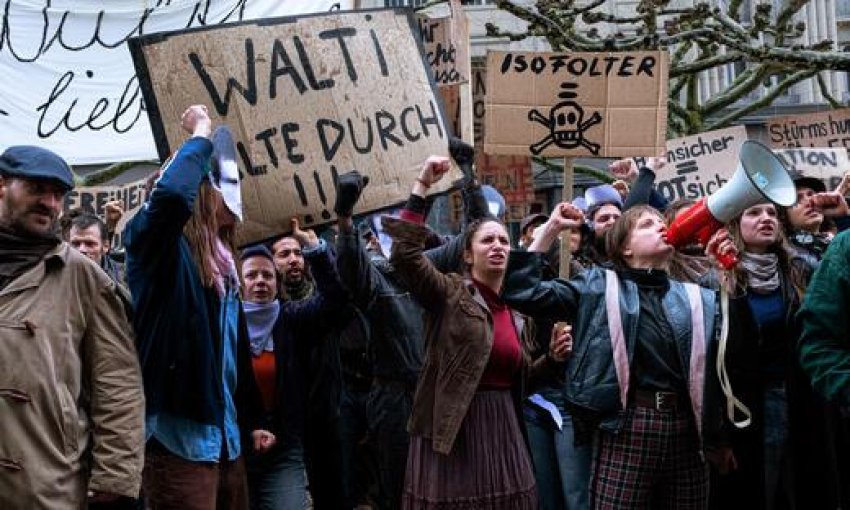
Caged Birds (Bis wir tot sind oder frei)
Directed by Oliver Rihs
Starring Marie Leuenberger, Joel Basman, Jella Haase
In German with English subtitles
Showing nationally as part of the German Film Festival
Monte Verità (Monte Verità - Der rausch der freiheit)
Directed by Stefan Jäger
Starring Maresi Riegner, Max Hubacher, Julia Jentsch
In German with English subtitles
Showing nationally as part of the German Film Festival
Switzerland has a reputation of being somewhat parochial, stuffy and conservative. However, these two films show that the country has an extraordinary history of radical personal and political struggle.
Caged Birds, which would be better served by having its German title directly translated, “Until we are dead or free”, opens with scenes of a 1981 Zurich riot in which tear gas swirls in a battle between anarchists and police. Interwoven, we see the daring prison escape of a career criminal.
These two events bring us into the lives of Walter Stürm (Joel Basman), who escaped from Swiss jails eight times between 1974–95 and radical lawyer Barbara Hug (Marie Leuenberger) who defended him.
Hug was stricken with kidney cancer as a child and lived with constant pain and disability, but defiantly refused to surrender to it, to the point of refusing the advice of her doctors. Stürm similarly refused to be contained by societal expectations and seized his freedom.
Hug is shown hiding Stürm from the authorities, which she actually did. The writers fill in a few gaps by bringing in a narrative of involvement with the German Red Army Faction.
Ultimately, the film is a meditation on the meaning and costs of individual freedom in a bourgeois society. It is fascinating and thought provoking.
Monte Verità is set at the other end of the 20th century, during the early years of the psychoanalysis movement. It depicts the free-thinking, experimental therapeutic community, called Monte Verità, that existed in southern Switzerland between 1900–1920.
The commune attracted such notables as Hermann Hesse, D H Lawrence, Isadora Duncan, and, it is said, August Bebel and Karl Kautsky.
The film shows the fictional story of a woman fleeing domestic violence and her husband's anti-sexual attitudes, which are supported by the medical profession. She escapes to Monte Verità seeking therapy from the radical psychotherapist, Otto Gross.
She encounters the intellectual ferment of artists and intellectuals such as Hesse and Duncan, and Gross's unusual therapeutic methods.
Gross, a firm anarchist, believed in the benefits of nude sunbathing, swimming naked and bisexuality. He insisted that people wishing to die should be assisted to suicide, no matter their physical or psychological health.
He also believed in liberating his patients’ sexuality by sleeping with them. His practices got him into trouble. Eventually, he was diagnosed as schizophrenic and died in ignominy.
His writings have resurfaced in recent years and a movement has sprung up researching and expounding on his theories.
Monte Verità does not explore that troublesome future but basks in the glow of the commune’s glorious peak.